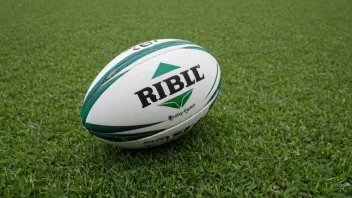In the world of running, hydration is often an overlooked yet crucial aspect of performance. Every runner, from seasoned marathoners to casual joggers, knows that staying hydrated is essential; however, the science behind it and its direct impact on performance are less understood. Proper hydration not only supports physical health but also enhances endurance, speeds recovery, and can even improve mental focus during runs. This article delves into the multifaceted role of hydration in running, discussing its importance, how to hydrate effectively, and the latest advancements in hydration technology that can aid runners in their pursuit of optimal performance.
Understanding Hydration and Its Importance
Hydration refers to the process of providing adequate fluids to the body to maintain normal physiological functions. During running, the body undergoes significant stress, leading to increased sweat production as a means of thermoregulation. When fluids are lost through sweat, it can result in dehydration, which adversely affects performance. Studies have shown that even a 2% loss in body weight due to dehydration can lead to a noticeable reduction in endurance and an increase in perceived effort. This serves as a reminder that maintaining adequate hydration is not just about quenching thirst; it is about sustaining performance and preventing fatigue.
Hydration Strategies for Runners
To maximize performance, runners must adopt effective hydration strategies. Here are some key considerations:
- Pre-run Hydration: Begin your run well-hydrated. Aim to drink water or a sports drink in the hours leading up to your run. A general guideline is to consume 500-600 ml of fluid two to three hours before running.
- During the Run: For runs lasting longer than an hour, it is essential to replenish lost fluids. Carry water or electrolyte drinks and sip regularly, aiming for approximately 150-250 ml every 15-20 minutes.
- Post-run Hydration: Rehydrating after a run is crucial to recovery. Within 30 minutes post-run, consume fluids that contain electrolytes to restore balance. Aim to drink 1.5 times the amount of fluid lost during the run.
Recognizing Signs of Dehydration
Being able to identify the signs of dehydration can help runners take proactive measures. Common symptoms include:
- Thirst
- Dizziness or lightheadedness
- Dry mouth or throat
- Fatigue
- Dark yellow urine
It's essential for runners to listen to their bodies and recognize these signs early to prevent more severe consequences, such as heat exhaustion or heat stroke.
The Role of Electrolytes
Electrolytes are minerals in the body that affect hydration status, muscle function, and nerve signaling. Sodium, potassium, magnesium, and calcium are vital electrolytes lost through sweat. For longer runs or in warmer climates, incorporating electrolyte-rich drinks can be beneficial. These drinks help maintain fluid balance, prevent muscle cramps, and improve overall performance. However, it’s crucial to choose beverages without excessive sugars or artificial ingredients.
Advancements in Hydration Technology
The evolution of hydration technology has made it easier for runners to maintain optimal hydration levels. Innovations such as smart water bottles are equipped with sensors that track fluid intake and remind users to hydrate at regular intervals. Additionally, wearable devices can monitor sweat rates and provide personalized hydration strategies based on individual needs. These technologies can be particularly beneficial during training sessions or long-distance events, helping runners to stay on top of their hydration game.
Hydration and Mental Performance
While physical performance is often the primary focus, hydration also plays a significant role in mental acuity. Dehydration can impair cognitive functions such as concentration, decision-making, and reaction time—all critical elements in running. Ensuring adequate hydration can help maintain mental clarity and focus, allowing runners to push through tough stretches and stay engaged with their pace and form.
Conclusion
Hydration is a cornerstone of running performance that should never be underestimated. From pre-run preparations to post-run recovery, understanding and implementing effective hydration strategies can significantly enhance a runner's endurance, speed, and overall health. With advancements in hydration technology and a growing awareness of the importance of maintaining fluid balance, runners have the tools at their disposal to optimize their performance while ensuring safety. By prioritizing hydration, runners can not only improve their athletic performance but also foster a lifelong passion for the sport.






